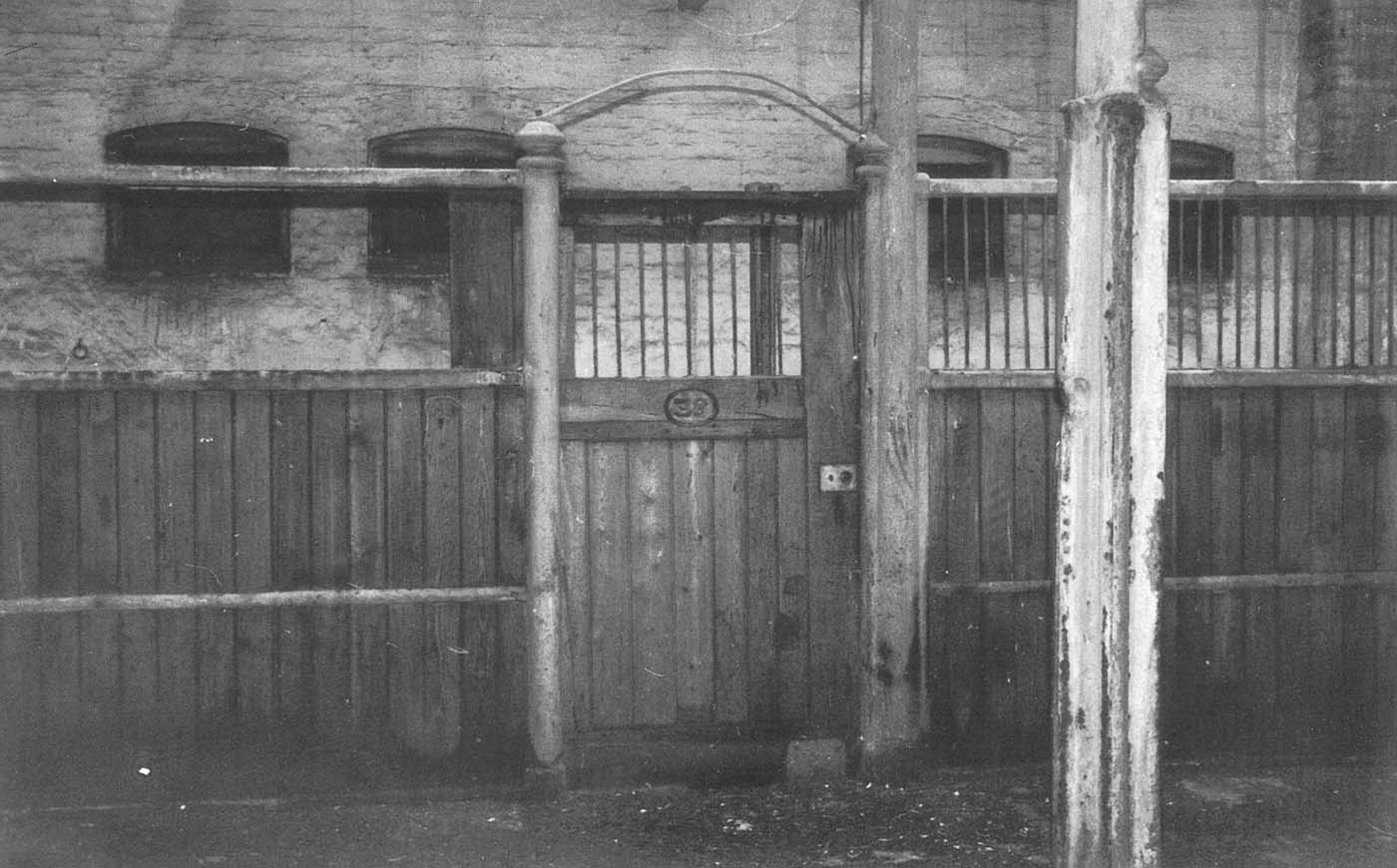|
|
 |
 |
|
London North Western
Railway:

Midland
Railway:

Stratford
Midland Junction Railway
|

|
LMS Route: Rugby to Wolverhampton
LMS Route: Birmingham New Street to Lichfield
LMS Route: Birmingham New Street to Soho and Perry
Barr
Curzon Street Goods Station: lnwrcs2141
 |
Fourth interior view of the top floor of the infirmary
stable block at the back of Top Yard 30 years after the last horse left.
Richard Foster writes, 'The older stable blocks in the top yard were
conventional single-storey structures opening on to a stable yard, whilst some
of the later blocks had stable accommodation on the upper floor. Each stable
was divided into bays, which were themselves divided by wooden partitions. Each
bay housed several horses which were kept loose, but separated by loose ropes
and boards. In the case of difficult or sick horses, the men had to be careful
about going into the bays to attend the horse because they could easily be
kicked or bitten. The carters tended to work with the same horse so that a
working relationship could be built up: those animals were usually the best and
most reliable. The carter was responsible for preparing his own horse and
harnessing it, and also for looking after his harness, keeping it properly
waxed (to keep the leather soft) and the brasses polished'. It was often the
case that the carter would arrive a little earlier in order to give himself a
little more time to spend with the horse. In many instances the carter's family
got to know the horse too. Richard recounts that the relationship between horse
and man could on occasion almost be human, 'One carter who had a particularly
close relationship with his horse would occasionally, in a slack moment, have a
game of hide and seek with the animal in the yard - he would dodge
between the pillars, the horse thoroughly enjoying the game of coming round
looking for him.
 back back

|
|
|
